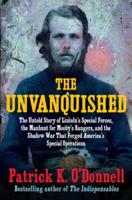Publisher's Synopsis
In 1958, while directing the microfilming of a trove of archives that the US forces had taken from the Nazis at the end of WWII, a young American scholar named Gerhard Weinberg found the manuscript of a second book that Hitler had written but never published. In a memoir, one of Hitler's secretaries had mentioned a'secret' book about Nazi foreign policy - Weinberg's special subject. Then, when Hitler's Table Talk was published by Hugh Trevor Roper in 1953, there was another reference to this 'unpublished work' by Hitler. Leafing through the contents of a green box-file, Weinberg found a folder labelled,'Draft of Mein Kampf'. In fact, it was a second book. The draft was yellowing but otherwise in good condition. The gaps between commas indicated that the book had been dictated straight onto a typewriter - a method consistent with Hitler's usual practice. The book never appeared because Hitler's publisher advised him that it would have competed with Mein Kampf, the second volume of which was not selling well. Additionally, Hitler had allied himself with the people he attacked in the manuscript- people on the political right who wanted to undo the Versailles Treaty, who he described as fools. A German version of the manuscript was published in 1961, but this is the first authoritative English version. This text bears all of Hitler's hallmarks: rambling thoughts, half-baked ideas, along with a terrifying, sustained belief in war and violence as the means to ensure that Germany would flourish. Hitler dwells at length on foreign policy and outlines a strategy of alliance with Fascist Italy and Great Britain. He actually believed that Britain would accept a German-dominated European continent so long as Germany did not challenge the overseas British empire. He also foresees an inevitable clash with the United States.










